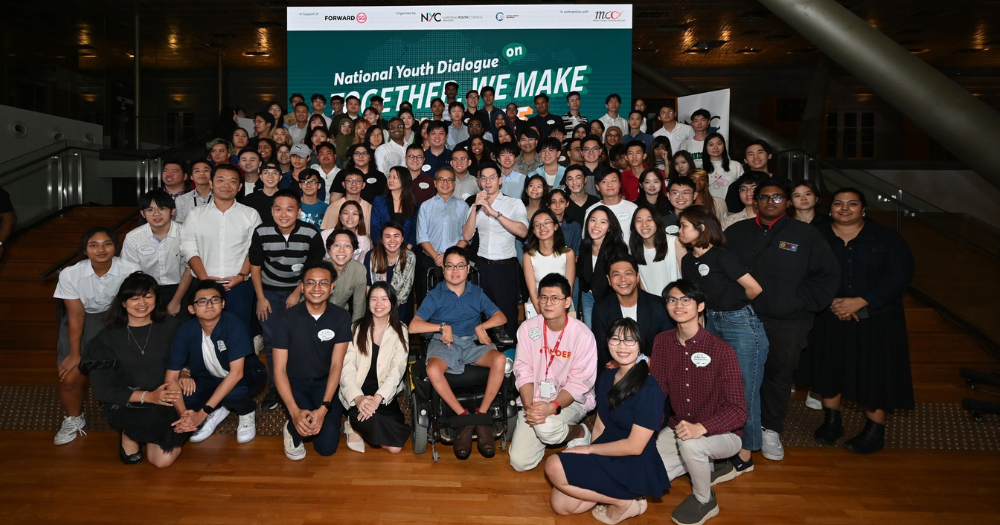Follow us on Telegram for the latest updates: https://t.me/mothershipsg
Youth panels are being set up later this year, to involve young Singaporeans in developing policy recommendations that will be considered by the government.
But how would the government allow for a wide range of youth voices to be heard? How much of a say would youths have in deciding the issues to be discussed?
Additionally, what assurances do youths have that their ideas will make a difference?
These were some of the questions addressed at the sixth session of the National Youth Dialogue series, titled "Together, We Make Singapore" on May 24, 2023.
The dialogue series is also part of the Forward Singapore exercise, that brings Singaporeans together to have conversations about creating a new social compact.
The dialogue was held at the National Gallery, and was helmed by Minister for Culture, Community and Youth and Second Minister for Law Edwin Tong.
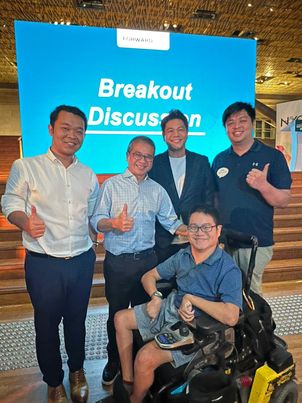 Edwin Tong with some youth participants at the dialogue. Image courtesy of Stanley James Ng.
Edwin Tong with some youth participants at the dialogue. Image courtesy of Stanley James Ng.
Panels to make recommendations on issues relevant to youths
In Tong's speech, he provided more details about the youth panels, which were initially announced at the Debate on the President's Address earlier in April.
Tong said that the National Youth Council hopes to set up two to three panels this year, each comprising at least 20-30 members.
They will be working on issues that resonate with youths, which are identified through other engagement platforms such as focus group discussions, dialogues and online polls.
These could include bread-and-butter and wellbeing issues, such as cost of living, jobs and the economy, and mental wellbeing.
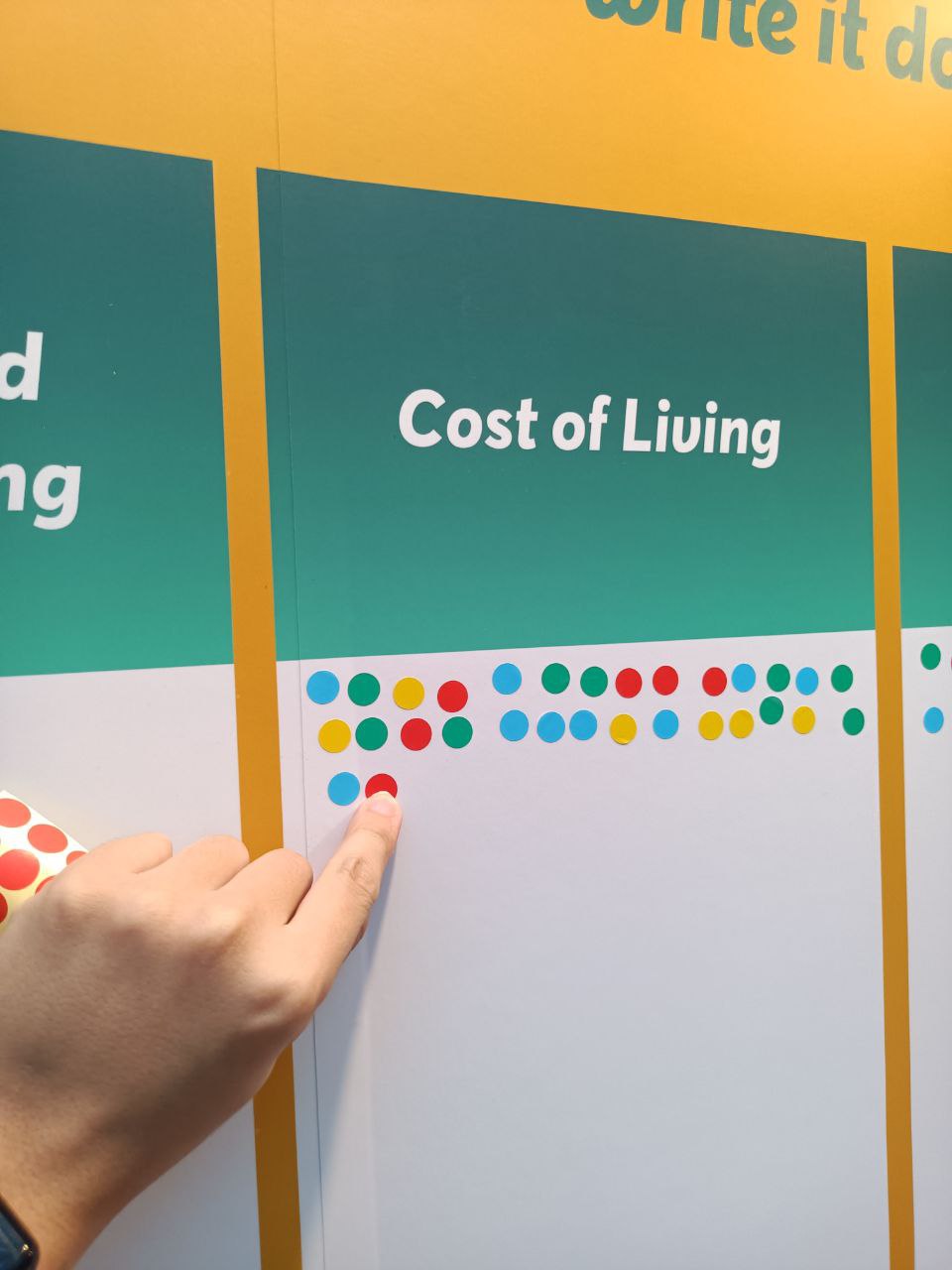 A board where participants could indicate using stickers, which issues they were concerned about. Image courtesy of Daniel Seow.
A board where participants could indicate using stickers, which issues they were concerned about. Image courtesy of Daniel Seow.
Additionally, Tong noted that many youths are invested in other issues that affect our lives, such as inclusivity, technology and environmental sustainability.
After the panels study these inputs and engage in a series of discussions with government agencies, the policy issues would be finalised within two to three months.
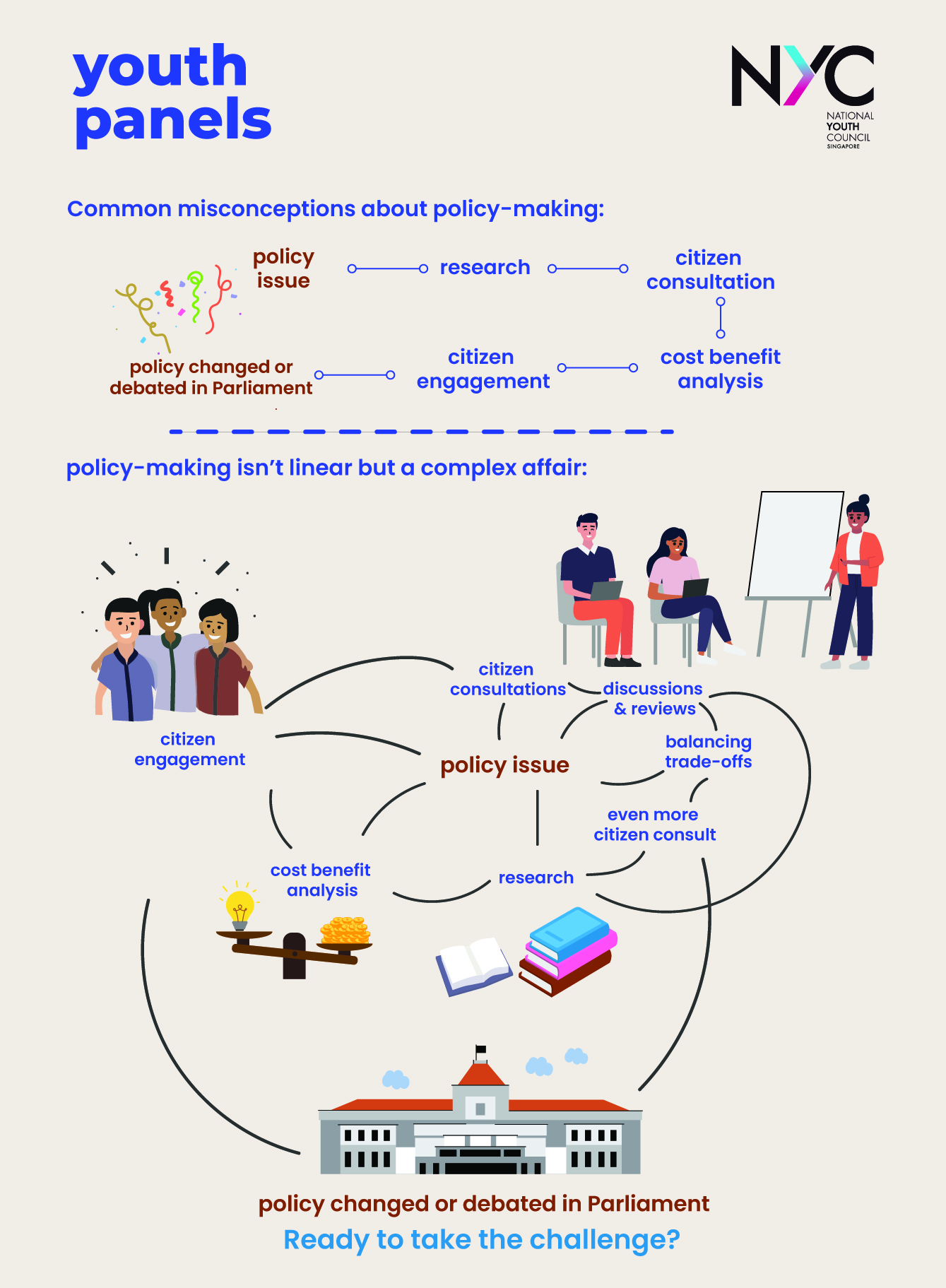 Image from National Youth Council.
Image from National Youth Council.
Later, these would be crystallised into policy recommendations that are submitted to the government, with the more pertinent recommendations to be discussed in Parliament.
Tong proposed that the youth panels should be policy-centric and outcome-driven.
"[It's about] working together with shared information to study a national issue that concerns young people and to propose a policy fix," he explained.
Importance of youth views
Tong affirmed the importance of youth views in shaping the future of Singapore.
"You are a key part of that debate," he addressed the youths, "Because you look at the issues we discuss in Parliament with a longer-term lens, and you hold a different perspective, which is important to us."
He encouraged youths who have a strong passion and are willing and able to contribute their time to express their interest in the youth panels. Others who might not be able to commit fully can still share their views and feedback on topics they feel the panels can work on.
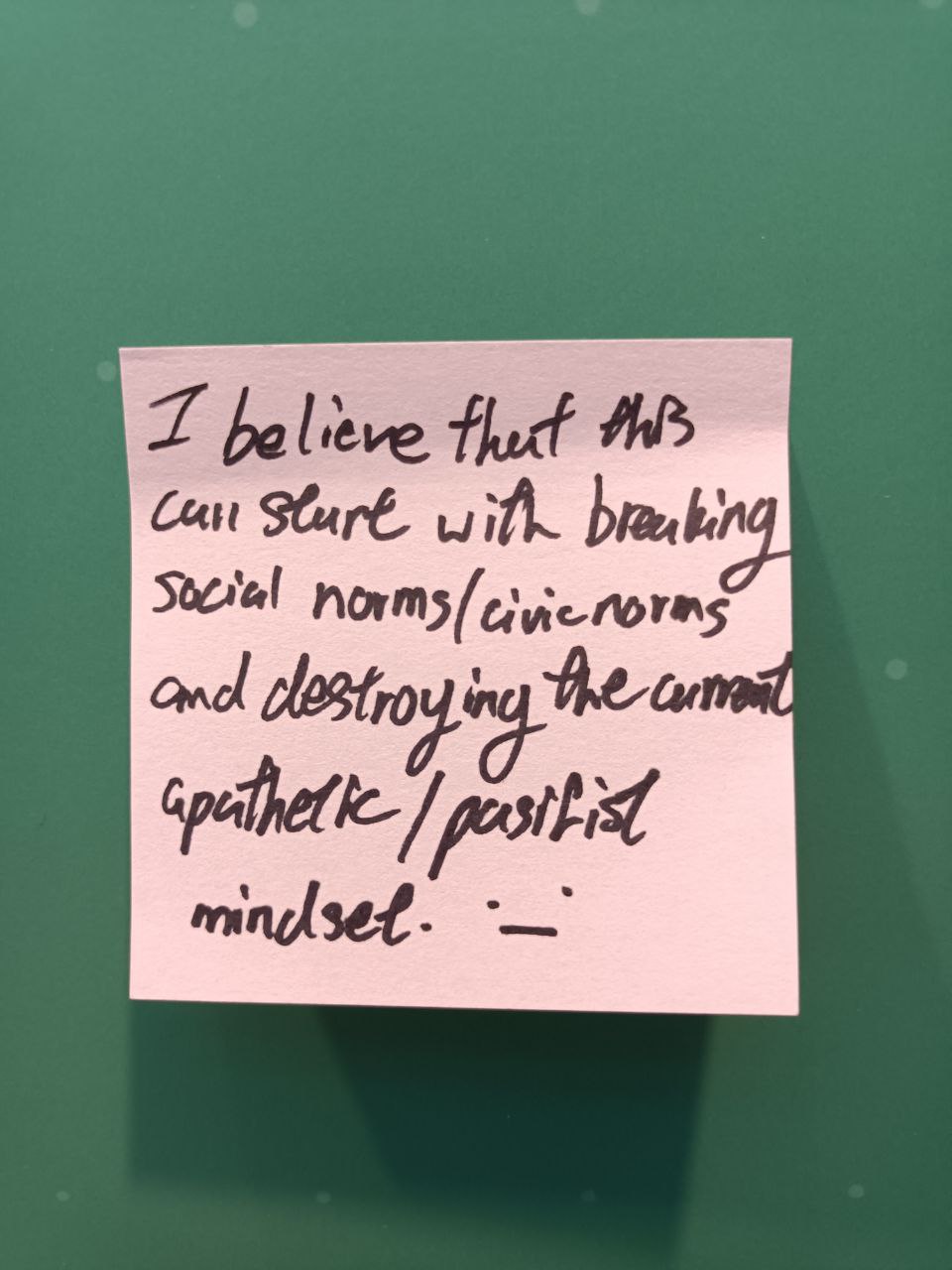 A post-it note written by a participant to answer the question "How can youths have a bigger say in national issues?". Image courtesy of Daniel Seow.
A post-it note written by a participant to answer the question "How can youths have a bigger say in national issues?". Image courtesy of Daniel Seow.
"I look forward to hearing from all of you your thoughts, contributions, constructive ideas or criticisms, anything that will make Singapore stronger than the sum of its parts," Tong concluded.
Panel discussion
Following Tong's speech, participants could voice or submit their questions, which were addressed in a panel discussion.
The panel consisted of Tong, Carol Soon, a senior research fellow at the Institute of Policy Studies, and Woo Qiyun, a seasoned climate activist.
Woo, incidentally, is Tong's constituent, and has written in to him on numerous occasions to raise awareness of issues, from plastic litter on beaches to community integration for migrant workers.
Tong admitted that the government does not have a monopoly on good ideas, and that advocates like Woo have made a difference by bringing awareness of on-the-ground issues to policy-makers.
Some fruits of their labour include initiatives to reduce plastic bag use, and training and recreation centres for migrant workers.
"There must be an openness to accept a degree of criticism in our policies, and [possible solutions] to improve our policies. It can be a two-way street if we make it constructive," Tong said.
Lower barriers for entry needed
One of the topics discussed by the panel was whether there are barriers for entry for youths to participate in such engagements.
Soon admitted that youths who do not have the time, bandwidth or resources might struggle to take part in more intensive discussions, like focus groups.
However, they can still participate in other modalities of citizen engagement, such as online surveys and polls.
Woo also shared that while youths do have the responsibility to step forward, the government is also responsible for providing access points for youths, and help them feel that participation is not so onerous or difficult.
Tong pointed out that apart from dialogues, efforts have been made by ministers to engage youths where they are, such as in schools.
More can be done to promote inclusive recruitment, Soon suggested, such as at touch points like hospitals and polyclinics, or by leveraging on the networks of social service agencies.
Providing a safe space to share freely
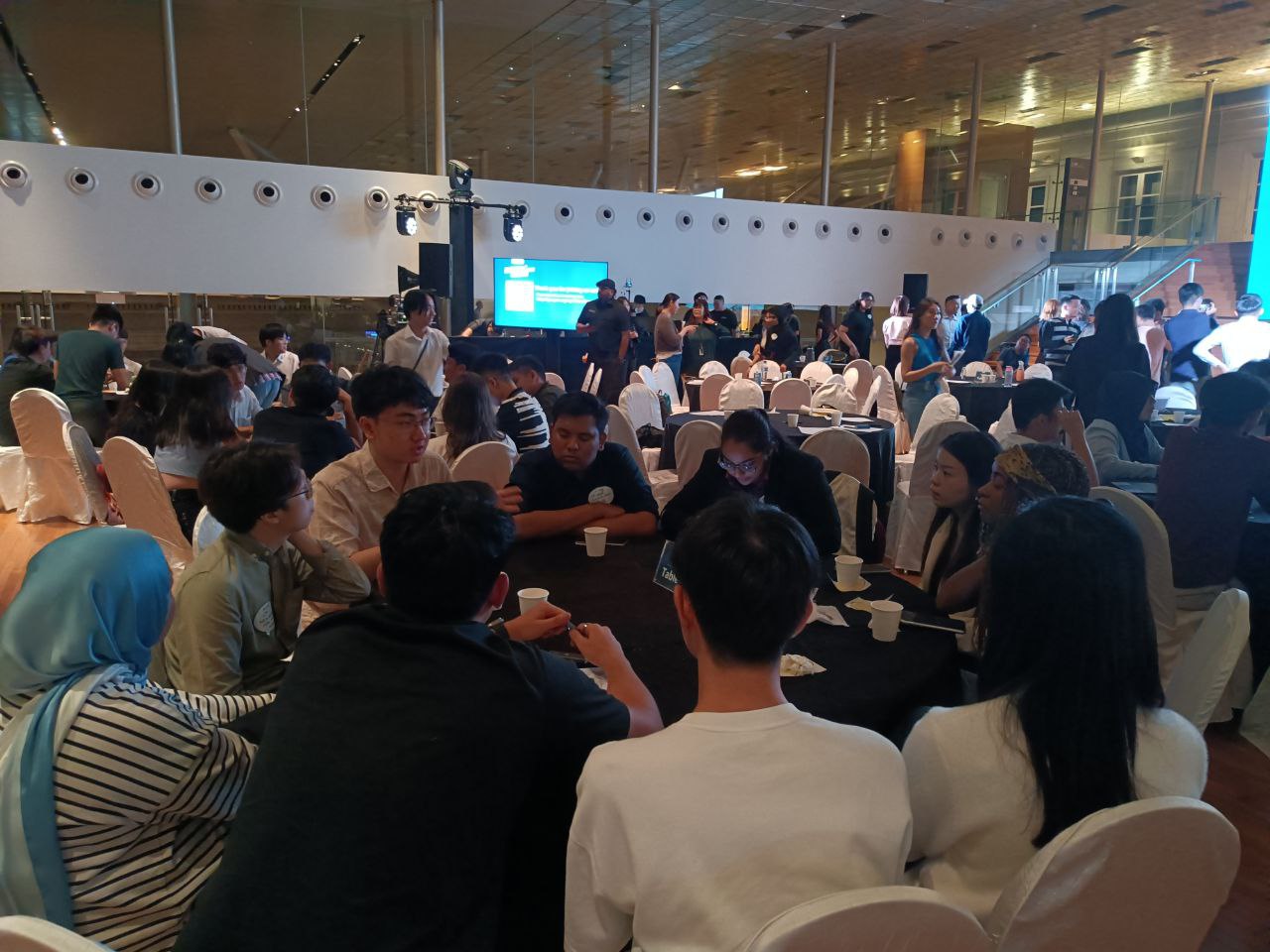 Youth participants sharing their views at the dialogue. Image courtesy of Daniel Seow.
Youth participants sharing their views at the dialogue. Image courtesy of Daniel Seow.
Soon pointed out the importance of creating a safe space for youths to be able to share frankly without feeling judged or criticised.
Woo echoed this, adding that more thought should be put into checking how youths are feeling throughout the sessions, and to find ways to encourage them to speak up.
One learning point from their engagements was that youths prefer to respond via text messaging, rather than live conversation, Tong said.
By allowing youth participants to respond via text messaging, this generated higher engagement as they felt more comfortable to share.
He also emphasised that the new panels would prioritise sharing information with youth participants, regarding the different nuances within the policy-making process, such as budget, manpower and long-term considerations.
This, he said, would enable the discussions to be carried out on a "level playing field", and generate more feasible recommendations.
That said, Tong encouraged youths to come for the engagements without worrying whether they have sufficient knowledge to participate.
"We value the youths' opinions as much as any research that has been done...[if we have enough] data points that represent a large portion of the youth population, then we can identify problems that most resonate with youth today," he added.
Closing the loop
Lastly, a question that some participants brought up was whether their feedback would be taken into account.
"We won't want to just share our views and not know where it's going to end up," a participant said.
In response, Soon suggested that closing the loop is very important, so that citizens know what suggestions are being considered by the government, and why others are rejected or perhaps, deemed unfeasible at the moment.
"This is important to retain citizens' trust in the government," she said.
Tong emphasised that relevant officers from different ministries would be involved in the youth panels, to promote sharing of information and to support the panel in coming up with feasible policy recommendations.
That said, he caveated that in some cases, even after the lengthy discussion process, the government may choose to leave the policy unchanged, due to prevailing considerations.
Tong felt that there is a merit in the process nonetheless, as citizens will still have the opportunity to exchange with the government on a level field.
It could also allow citizens to gain a deeper awareness of policy-making, Soon added.
Woo also pointed out that change can happen outside the government sphere, such as by working with private stakeholders like companies and shopping centres to effect change.
Breakout group discussion
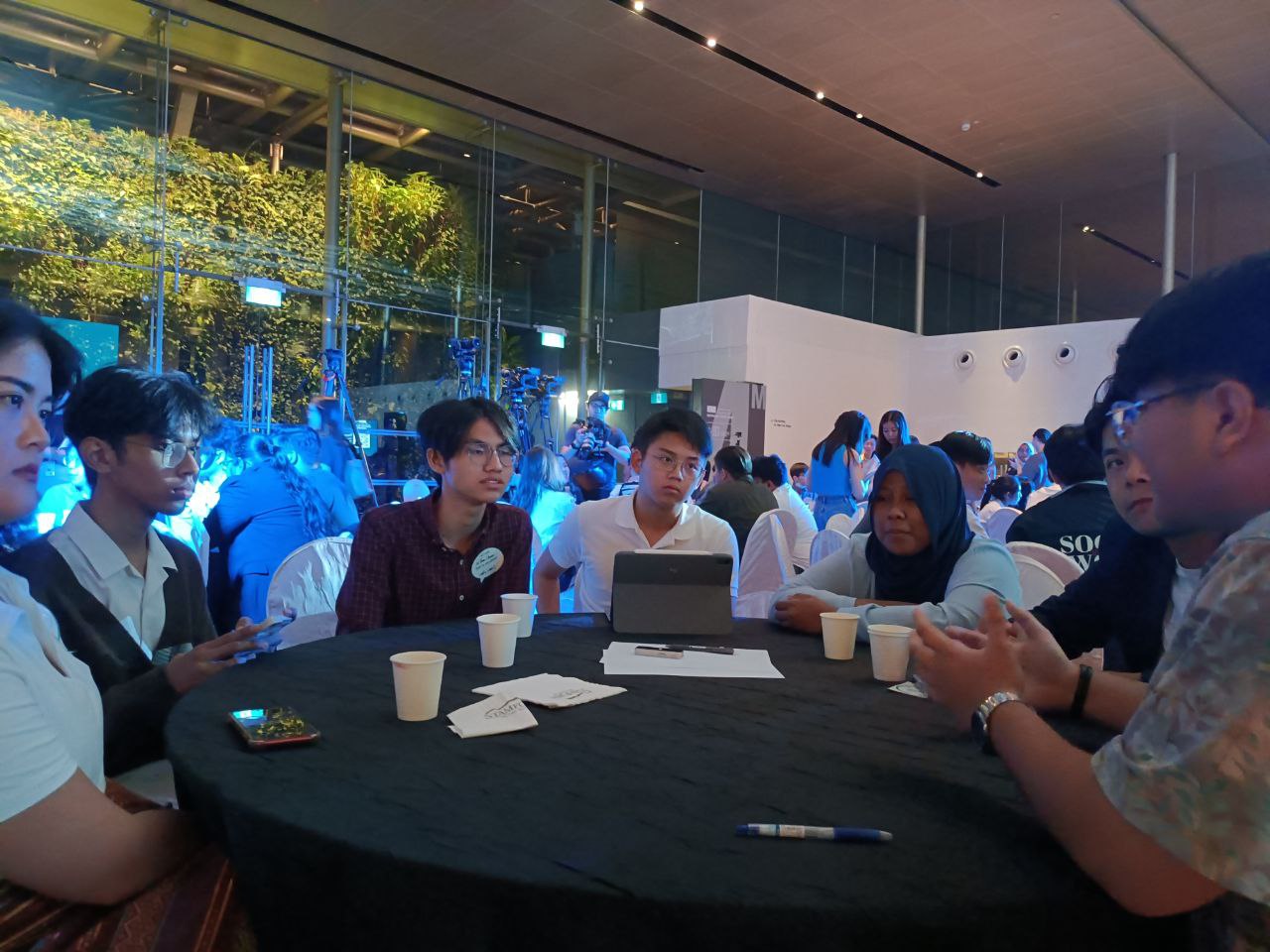 Image courtesy of Daniel Seow.
Image courtesy of Daniel Seow.
The panel discussion was followed by a breakout group discussion.
Mothership joined a group where we heard insightful discussions on society (is society conditioning kids to be less curious and ask fewer questions? Has modern Singapore society lost the urgency to unite?) and the importance of sharing different perspectives (is it important for everyone to be heard? Is there a value in just sharing the pain points faced in our lived experiences?).
How to sign up
Youths who are interested in the youth panels can register their interest via this link.
They can also check out the range of engagement opportunities offered by the National Youth Council here.
Top image from National Youth Council Singapore on Facebook.
If you like what you read, follow us on Facebook, Instagram, Twitter and Telegram to get the latest updates.

